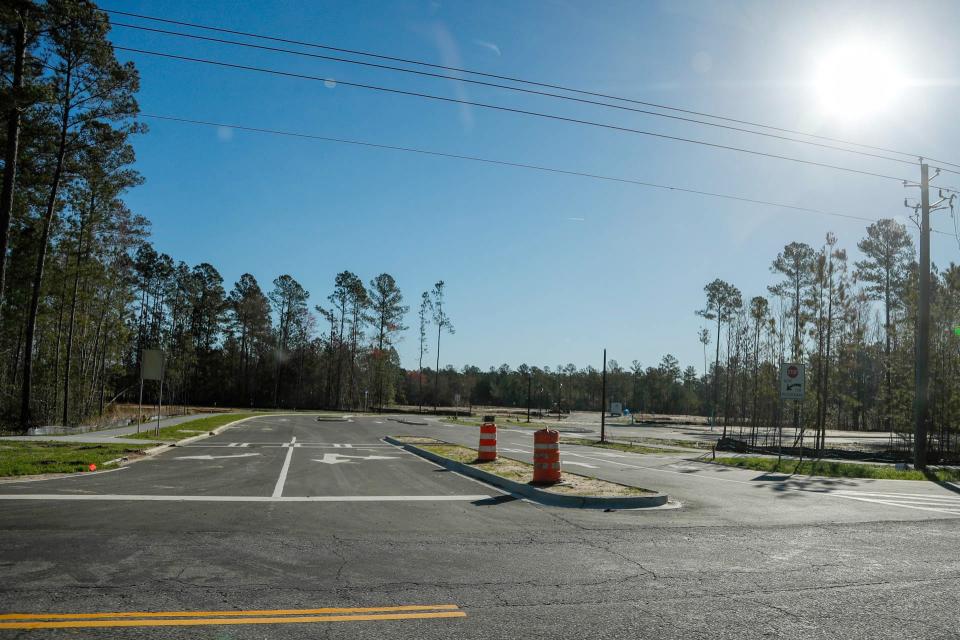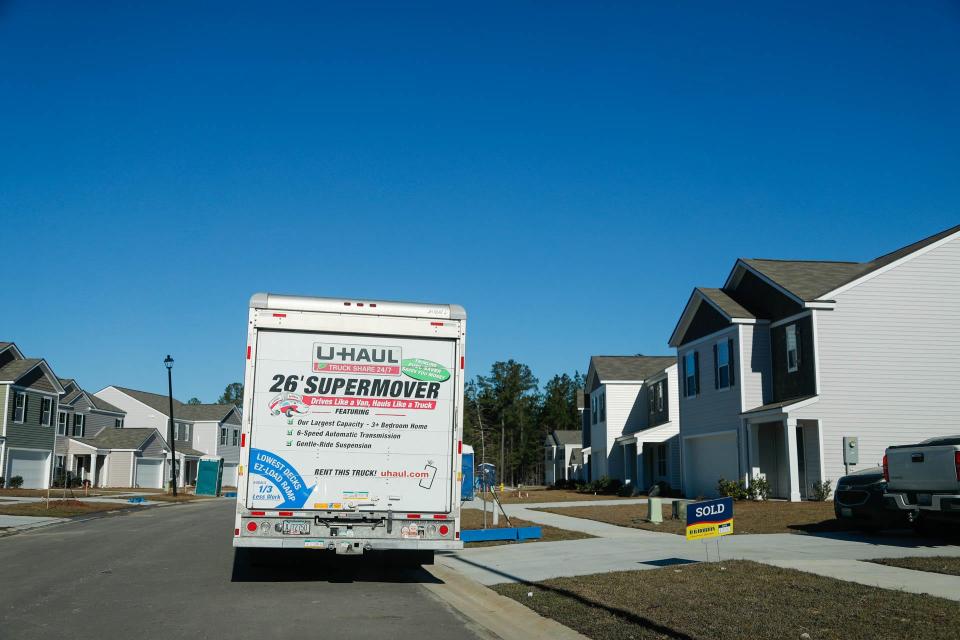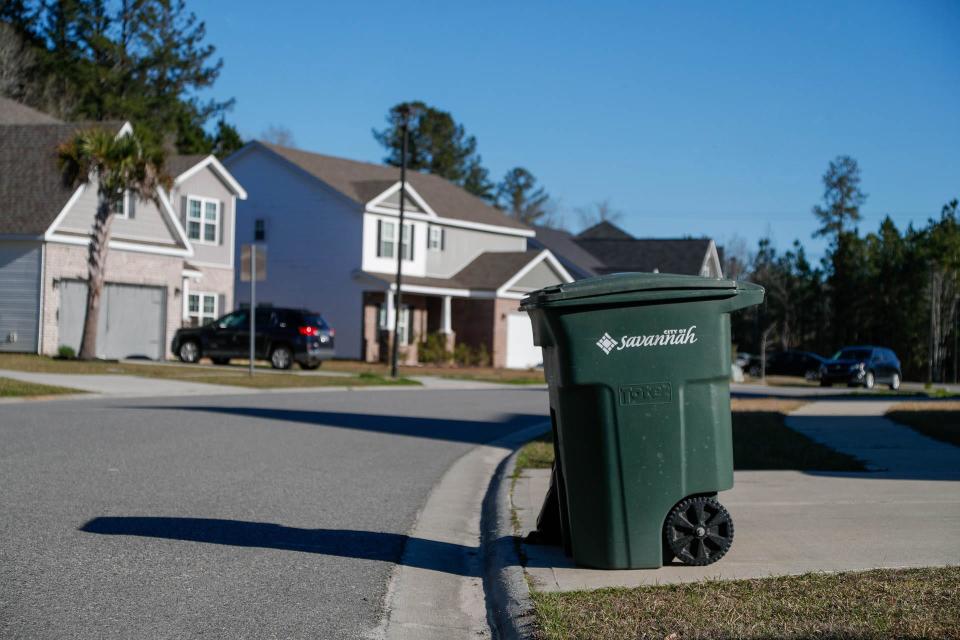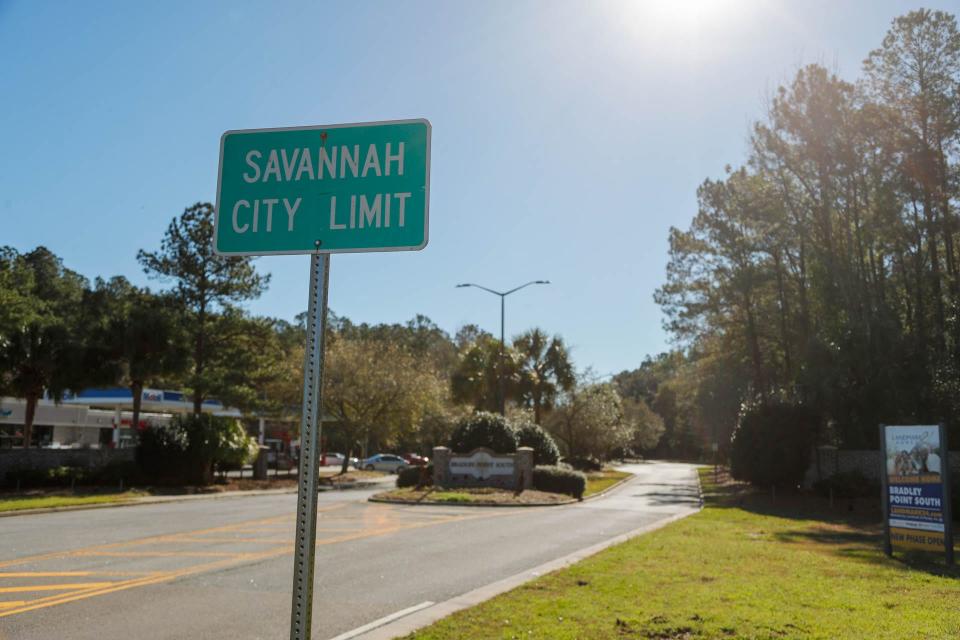Impact fees are a 'blunt instrument.' Developers, city leaders debate pros and cons
- Oops!Something went wrong.Please try again later.
Editor's note: This story was updated on Feb. 21 to clarify City Manager Jay Melder's recommendation for the timeline on impact fee implementation.
With Savannah on the leading edge of a projected real estate development boom, City Council is poised to adopt an impact fee ordinance that would affect all future new construction within the city limits.
The move is meant to establish a revenue stream to fund the costs of infrastructure and services in fast-developing pockets of Savannah and lessen that burden on taxpayers. The impact fee would be levied against developers and homebuilders, much like a building permit.
What is an impact fee?Explaining how fees are collected and what they can be used for
Yet developers warn that the price of lower taxes via impact fees is likely increased home prices, in an area already plagued by housing affordability issues. The timing of the impact fee - the city has targeted May 1 for implementation - is not ideal, said John Mowry, co-owner of Homes of Integrity Construction and president of The Homebuilders Association of Greater Savannah.
“We're already dealing with inflation, issues, cost of building materials up regulations on developments costing a lot more money and now wanting to add an impact fee, and they're crying that we don't have enough workforce housing and affordable housing,” Mowry said. “That's kind of hard to do when we're constantly adding more costs to the developments in the builders.”

Savannah's push on impact fees also comes at a time when the state government is considering actions to address housing affordability. Georgia Gov. Brian Kemp has proposed creating a rural workforce housing program, and while Savannah properties would likely not be eligible, those in neighboring areas, such as Bryan and Effingham counties, likely would. The Georgia General Assembly is likewise exploring legislative action, including bills directly related to impact fees.
Bert Brantley with the Savannah Area Chamber of Commerce said these factors should be taken into consideration in planning the impact fee’s implementation.
"You’ve got the state, that’s recognized this as an issue on the workforce housing side, and you've got funds that are being allocated into the workforce housing fund. You’ve got bills and legislation that are pending, some specifically on impact fees, but also on housing as well,” said Brantley, a former Kemp staffer. “There's a lot of attention, and rightly so, being brought to the issue of affordability.”
From the city's perspective, impact fees are a necessity for taxpayers. At the Feb. 7 council workshop where Savannah City Manager Jay Melder gave the council a presentation on impact fees, Melder said the alternative to implementing the fee would be finding another way to supplement the costs of new infrastructure, which would likely mean a millage increase next year.
'Remember in November.' How one Savannah council vote sets the tone for election year

Why an impact fee?
Over the next 23 years, the overall growth of Savannah’s population is projected to be about 17%, and the employment growth at 26%. Much of this growth can be attributed to the Hyundai plant under construction in Bryan County and its many associated vendors.
That kind of anticipated population growth demands more workforce housing and apartment complexes, which will require the city to expand the services already provided for current Savannahians to the newcomers. And that’s no small task.
“There have been many concerns on council about overburdening homebuyers with additional cost. This is a real concern. However, if the city decides to forego impact fees, we must find sources of funding to provide infrastructure for essential public services, such as public safety, roads and recreation to these growth areas, meaning new sales tax or increase property taxes would have to be considered,” Melder said at the workshop. “And that would apply to the whole community. Meaning that communities that are all already built out would be paying for growth and new communities.”
Melder recommended providing an exemption for affordable housing developments, which means the city will have to foot the bill for expanding service there.
“The city must pay the impact fee for every project that qualifies for an exemption which is why I'm only recommending the one exemption for affordable housing,” Melder said.

At the workshop, Melder recommended implementing the fee at an escalating rate, providing council with two options: only charge developers 50% of the fee the first year, then 100% of the fee in the second year; or a three-year implementation that would start at 50%, increase to 75% in year two, then 100% in year three.
Melder said he leaned more towards a three-year implementation period, based on the projections for a nationwide economic “slowdown” later this year.
“We believe we can give time for the housing market to adapt and to go through what may come in terms of an economic slowdown but also capture the revenue we need to build up public infrastructure,” Melder said.
Bar cards? No more BYOB? Savannah makes sweeping changes to alcohol ordinance. What to know
What does council have to say about it?
Much of the anticipated growth is expected in the west side of the city, primarily within District 1. Calls to District 1 Alderwoman Bernetta Lanier were not returned by publication.
But the impact fee won’t just apply to District 1 projects. It will apply to all new developments, residential, commercial and industrial.
Another council member who represents Savannah's westside neighobrhoods, District 5 Alderwoman and Mayor Pro Tem Estella Shabazz ,said she supports impact fees.
“Savannah and the region are experiencing tremendous growth Impacting our neighborhoods and the City as a whole. We have aging infrastructure and will need smart business growth, balancing the demand, while continuing to provide vital services to our citizens.” Shabazz said in a provided statement.
“This approach will require solid fiscal management and additional resources. The impact fee will provide current and future needs such as police and fire stations, roads and sidewalks, and recreational amenities. This will improve the quality of life and needed services for our residents," Shabazz said.

During the workshop, Melder reiterated that the fee is finely balanced and cautioned council against proposing significant changes that would lower or otherwise significantly alter it.
“I want to also emphasize that the way the state has structured the program leaves little wiggle room to adjust to local preferences. Impact fees are a blunt instrument," Melder said. "If we want an effective program, we will have to adopt an impact fee ordinance that produces enough revenue to follow through on the capital improvement elements in the plan so that new communities feel like they're getting what they're paying for.”
City Talk: Savannah can grow housing stock from within. Here's where and why.
When will Savannah City Council vote on impact fees?
Savannah City Council will hold its second public hearing on impact fees at their 6:30 p.m. Feb. 23 meeting. The first public hearing, held at the Feb. 7 council meeting, was ill-attended, though Mowry, the homebuilders association president, said this time around, he's expecting to see more people turn out.
Anyone can speak for or against the measure at the hearing. After that, Savannah City Council is expected to vote on whether to implement impact fees.
This article originally appeared on Savannah Morning News: Savannah Council weighs tax hike, rising home costs in impact fee vote

